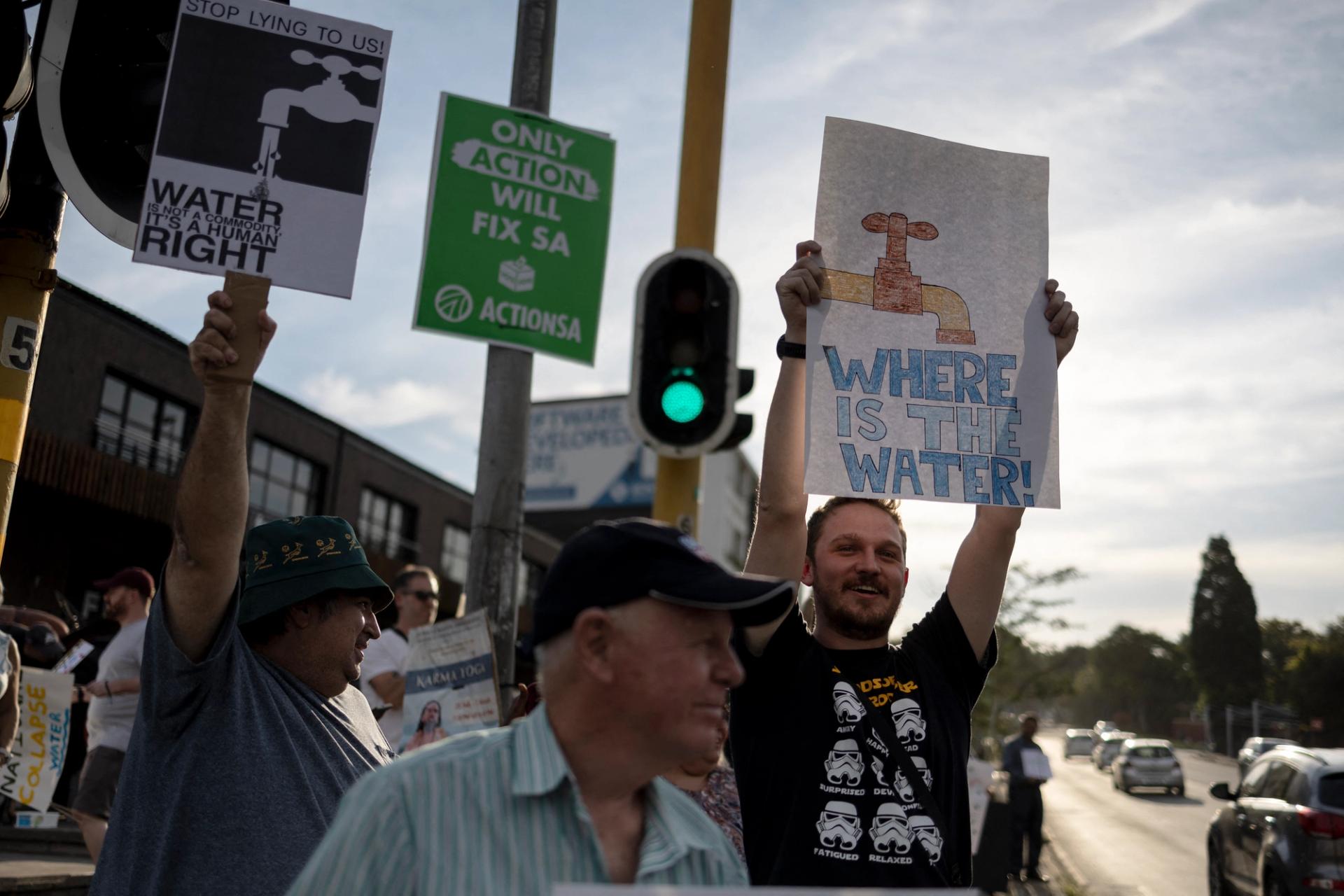The News
Millions of people in Johannesburg have been left without consistent access to clean water over the past two weeks, in the latest crisis to highlight the precariousness of South Africa’s water supply.
A large swath of South Africa’s biggest city was left without water for 11 days, Bloomberg reported, while residents from both affluent and poorer neighborhoods have been forced to line up for hours to get water from municipal tankers.
Rand Water, the bulk supplier for the city’s residents, has been under “severe pressure”, city authorities announced, adding that the entire water supply system is strained to the point of collapse.
SIGNALS
Johannesburg’s water pipes are crumbling and relief is unlikely to come soon
Aging infrastructure means as much as 44% of the water distributed to Johannesburg’s supply system is lost due to leaks and theft, Bloomberg reported. “The more that Rand Water pumps into this leaking sieve, the more they are depleting their reservoirs. The system is now starting to self-destruct,” one environmental studies professor from South Africa’s University of the Free State said. Dam and hydro-electricity projects such as the Lesotho Highlands Scheme, which would increase the supply of water to Johannesburg and other residents of the Gauteng region, are eight years behind schedule, and won’t be completed until 2028, according to the University of the Witwatersrand. Meanwhile, elected officials continue to deny the extent of the problem, with the mayor of Johannesburg insisting that there is “no water crisis,” according to South African news site the Daily Maverick.
Poorer residents in informal settlements face extreme challenges in obtaining water
“Inequality plays out in water… the social contract breaks down, if the rich find their solution and leave the rest to fend for themselves,” the water managing director for The Nature Conservancy, a global environmental organization, told The Washington Post. In 2018, when Cape Town faced an impending ‘Day Zero’— when the city’s taps would be shut off because of acutely low reservoir levels — economic disparities were laid bare as residents in wealthier neighborhoods ordered the digging of wells and desalination machines, while informal settlements struggled to access water. According to Cape Town-based news outlet Ground Up, more than 40 informal settlements south of Johannesburg rely upon a single contractor to fill their water tanks. Because of a shortage of access, residents have resorted to gathering water from dirty streams. “Because we are desperate, we have no choice but to use that water,” one said.
Cape Town authorities knew of likely water crises for years, but failed to build out supply
Water managers discussed the possibility of Cape Town running out of water as far back as 1990, yet authorities ignored the problem and the situation was never properly addressed, hydrologists said. During the region’s regular droughts, the city relied too much on managing demand — imposing restrictions and relying on people to curb their water use — because it is “far less expensive and nimbler than the costly, time-consuming process of building out supply,” Hydrogeology Journal reported. As Cape Town’s water levels hit crisis point in 2018, residents found ingenious ways to stick to their allotted 13 gallons per person per day, sharing tips such as lining plates with layers of plastic wrap to avoid washing, baking food rather than boiling it, and using laundry water to flush the toilet, one Capetonian wrote for TIME. But while residents’ efforts had an impact, conserving water has its limits, and there are few ways to cut off profligate users in wealthier neighborhoods, she said.

